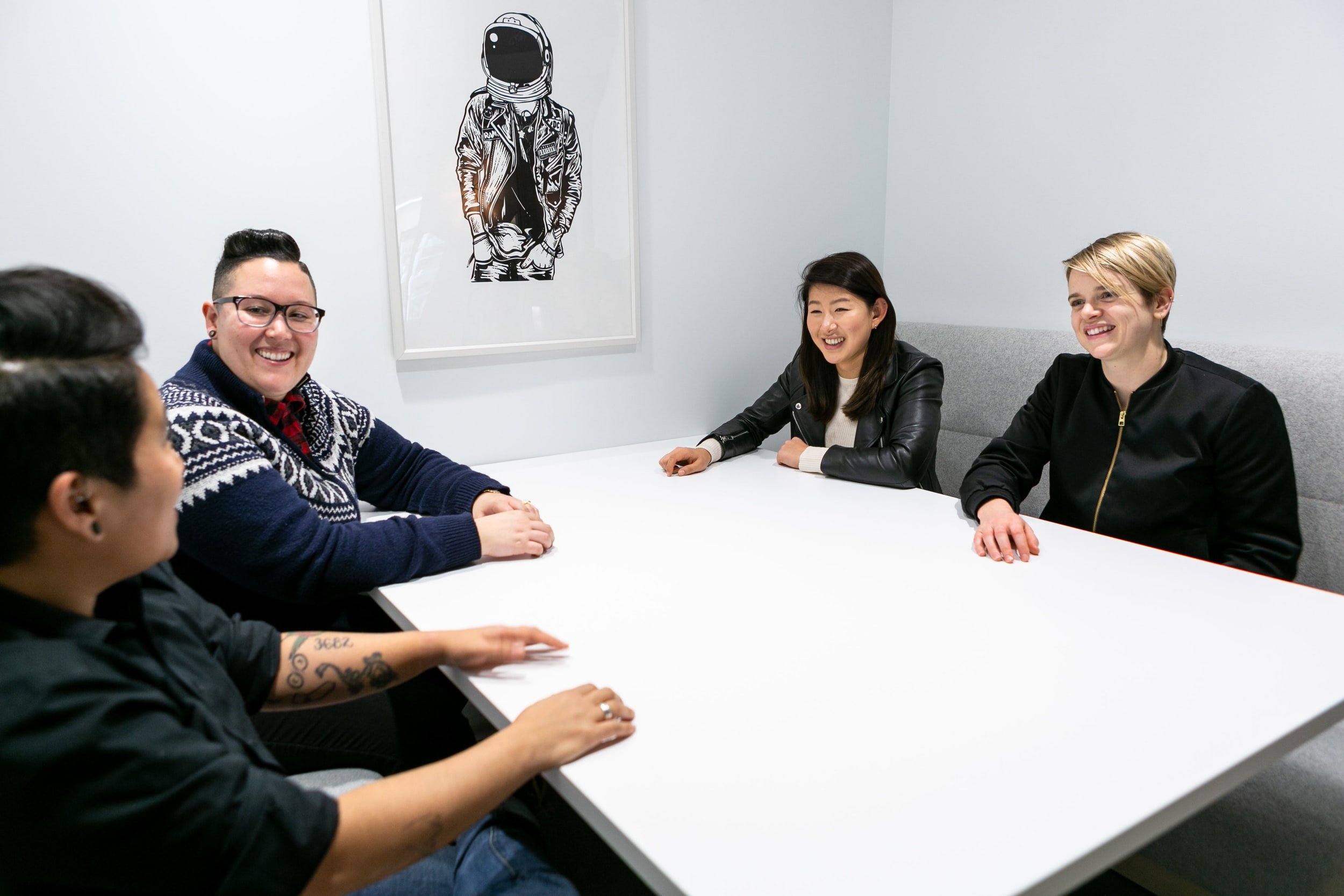Organizational Consultation

What stays hidden from us creates pain.
We carry the impact of our individual and collective pasts into our present-day. Each of us is vulnerable to reacting from a place of old wounds; this is human.
We can learn to move toward the pain — to end the cycle
and create new ways of relating, to ourselves and others.
Listening for Legacy helps leaders and staff develop greater self- and other-awareness, to interrupt the potential for harm and embody new ways of listening that foster a sense of care, belonging, and dignity.
We do this by integrating wisdom from attachment and family systems theories, relational psychoanalytic thinking, and intergenerational and historical trauma frameworks. We work together from the inside out, to prioritize the health of relationships and bring about real change.
We move from intellectualizing together
to experiencing one another.
Leadership Team Consultation
Leaders often do not designate time and space to reflect on the various dynamics that influence how they function as a team and communicate with staff. Depth-oriented consultation can assist team members in slowing down to explore unconscious patterns of relating and decision-making. With this shift, leaders internalize new skills and capacities that increase authenticity and attunement with staff and partners.
In group sessions, we turn inward to:
Gain an understanding of how the team currently functions.
Reflect on the team’s awareness of power and cultural dynamics — how positionality influences patterns of relating to one another and staff.
Explore how the team thinks about and conceptualizes conflicts, challenges, and needs.
Build internal capacity to “mentalize”: the ability to be curious about what is happening inside your mind as well as another’s.
Listen for what is being communicated underneath the surface, directing relational dynamics and creating pain.
One-on-one consultation with leaders is also available,
when deeper individual exploration is needed for a particular issue that persists
and affects the larger system.
Dyadic & Small Group Facilitation
When interpersonal injuries occur in the workplace, compounded trauma is often evoked. Wounds — childhood, cultural, and collective — are triggered and amplified. Listening for Legacy understands and respects this complexity. Together, we use nuanced and attuned exploration to attend to the root of injuries.
Prior to facilitation, we assess the impact by:
Conducting individual sessions, to gather singular perspectives about how the injury was (and continues to be) experienced, what hurt is present, and the scope of needs.
Developing a personalized plan that honors the present and accumulated pain as well as the emergent nature of upcoming work.
Collectively determining the most effective time to engage in a facilitated practice and process.
Within a facilitated process, we practice:
-
by becoming conscious of and gaining perspective on our charged responses (e.g., physiological, mental, emotional) as survival responses in the present, in order to improve our ability “to be with” the thoughts, emotions, and sensations that rise up.
-
to pick up on unconscious patterns of communication and themes that contribute to injury and inform how we consider what is needed to address wounding and repair (internally and interpersonally).
-
(e.g., glossed over responses to conflict and disagreement, apathy, chronic friction), as resultant of power and cultural dynamics at play and in need of our attention.

